quite brilliant, you really are making very inventive use of the in-game events to give a real depth to the usual 'put your NF on clergy' decision
So Far From God- A Mexico AHD AAR
- Thread starter Chilango2
- Start date
-
We have updated our Community Code of Conduct. Please read through the new rules for the forum that are an integral part of Paradox Interactive’s User Agreement.
You are using an out of date browser. It may not display this or other websites correctly.
You should upgrade or use an alternative browser.
You should upgrade or use an alternative browser.
@saithis The entire driving force of this chapter is to unpack what "illiterate" means and who this does not equal ignorant. 
@loki It causes the AAR to progress slowly time wise, sometimes, but its alot of fun. I basically take a screenshot of *all* events, and then try to contextualise them to what's going on at a meta level and turn the whole thing into a story. I'm glad the results have met with some success.
@Cinead Note that the last update hints at the difference between supporting the clergy vs supporting the church. The screenshot of the ideology of the clergy you see in the last update was particularly influential to the way I have been writing this chapter, as the church and the priests are not one and the same, as the history and arguments about liberation theology showed in the real world.
--
Next update should be Friday.
@loki It causes the AAR to progress slowly time wise, sometimes, but its alot of fun. I basically take a screenshot of *all* events, and then try to contextualise them to what's going on at a meta level and turn the whole thing into a story. I'm glad the results have met with some success.
@Cinead Note that the last update hints at the difference between supporting the clergy vs supporting the church. The screenshot of the ideology of the clergy you see in the last update was particularly influential to the way I have been writing this chapter, as the church and the priests are not one and the same, as the history and arguments about liberation theology showed in the real world.
--
Next update should be Friday.
Last edited:
What's the state of the USCA - if they're still in one peice, you could try to strip a northern province from them?
Other than that, excellent AAR!
Other than that, excellent AAR!
What's the state of the USCA - if they're still in one peice, you could try to strip a northern province from them?
Other than that, excellent AAR!
They have 2 states left and the northern one is their capital.
Good update! I find it interesting how the majority of your clergy are liberal, it's not the first thing I'd expect to see.
What's the state of the USCA - if they're still in one peice, you could try to strip a northern province from them?
Other than that, excellent AAR!
Up to the furthest the game has been played (1852), the USCA is intact, a sphere of the USA, allied with them, and protected by them. In other words, it would be, shall we say, a bad idea to go to war with them currently, as that would bring in the USA, whose military score is twice mine.
The other problem, I think, is that I believe they have 4 states, one too many to outright annex. I could take one of their southern states (their capital is the state that borders me..) and *then* annex then, but that would take ten years. I could "protectorate" them when I get the tech to do so, of course. We'll see how it goes.
@Saithis I did not expect it either. Needless to say, when I saw that, it shaped and to a certain extent determined how this AAR was written.
And the familiar strange...
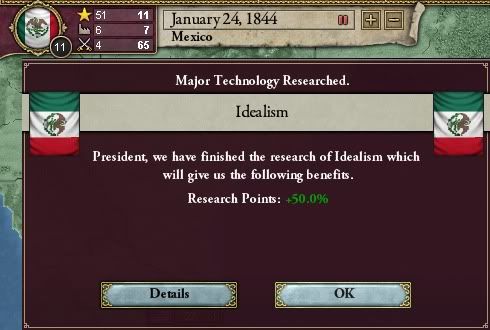
"It has been the tendency, among those of our particular calling to see ourselves as representatives of that which is beyond, the spiritual, not the earthly."
The men in the room nodded, most accepting his words, some few irritated he was stating something so obvious.
"But are we truly? When we stand in a church, such as this, what is it that we are doing? With a book in front of us, what is the act we are in the process of engaging in?"
Would they understand? He could not be sure yet. He did not understand himself: that was the trick, to grow into the acceptance of not understanding.
"What if in that moment, in what you are reading, the physical act, is in fact, not any such thing? Is not your mind rememering the words on the page, reciting them, and then presenting them? Are you not conversing with the text, and then presenting it before the flock? And when you do so, are not their own ideas interpreting the words they hear, as well as the physical representation they see?"
He placed his hand on the book in question.
"What is this? Is it pages and ink? Or ideas, morals, an entire way of thinking?"
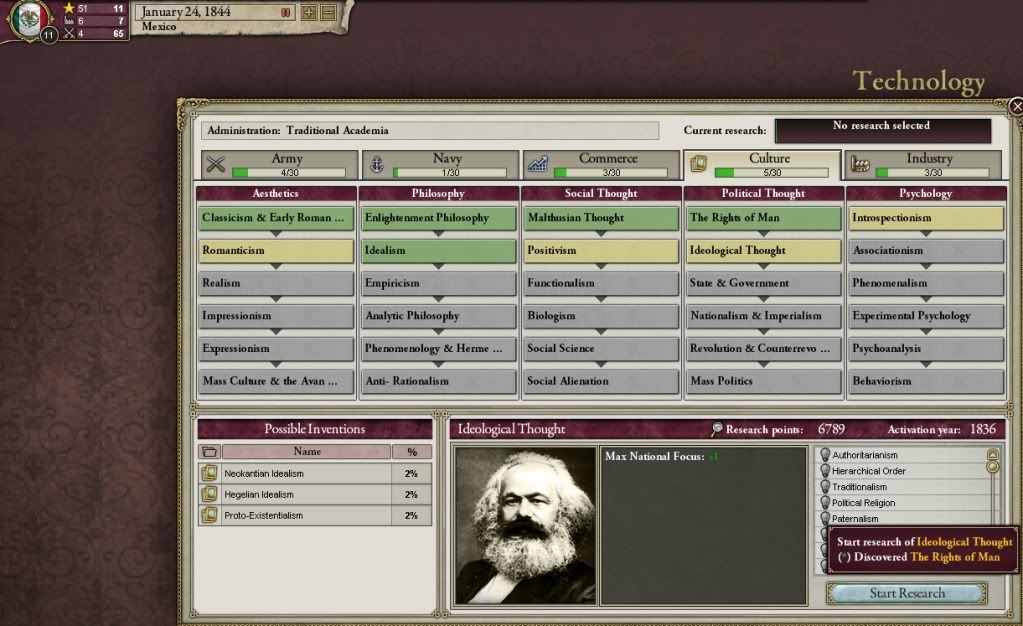
"Or is it in fact, that, as Kant argues, we should conform our thoughts to the object of the text? Is the meaning of the text in the text itself, or in our interaction with it? Is who we are shape how we read it?"
Restlessness among the audience. Good.
"Or perhaps, as Hegel argues, the world is an expression of the spirit, which we may interpret as God, moving history onward?"
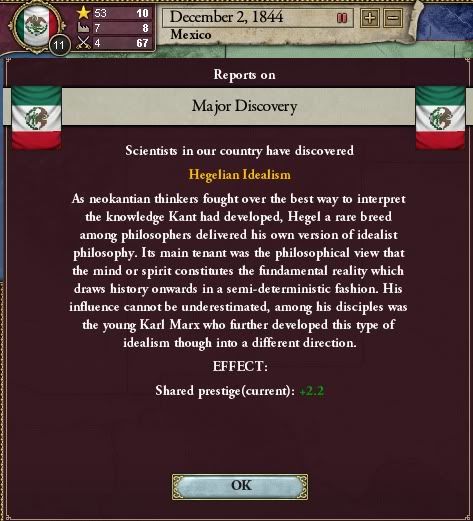
"Who is the actor? The text itself? Or you when you read it? What is it that occurs when you read?"
Mutters.
"Does the spirit move in you? Do you move the spirit? Do you get the meaning of God in the text? Or must you, like a blind mind describing the elephent, interpret what you sense as best you can of the larger reality contained in the text? Is that larger reality in fact contained in you? We are all, after all, spirits encased in flesh."
One of the men shakes his head, finally speaking up. "This is all...veyr philsophical...but..what is the point? You speak in circles, Brother."
"That is the point."
"I don't understand."
"That is also the point. We imagine ourselves teachers. We are learners. That is the point. I do not, myself, know the answer to the questions above. What I wish to teach to you is the value of not knowing the answers to questions. To ask, as it were."
"But what is the point of a question without an answer?"
"The process of inquiry itself. To go back to the act of reading the bible. Reading may seem to you a normal thing, an everyday thing. And yet it can, through one light, be seen as strange, for where does the meaning come from? In the bible, it may be said to come from God. But what of Critique of Pure Reason? Or any other work? It is this fundamental strangeness of what you do every day, I wish you to see, so you may see what makes up the parts of what you do."
"What could the use of such a thing be?"
"When you see the strangeness of what you do, you will see that which is you, and that which is the world, and how the two interact. You will also see how things you do are similar to things others do. They seem strange, by making yourself strange, you make yourself see as they might see you. Jesus told us to love our enemies. To love is to know, to understand. If we must understand and know our enemies as we would our friends, what is called for with our own flock?"

"It has been the tendency, among those of our particular calling to see ourselves as representatives of that which is beyond, the spiritual, not the earthly."
The men in the room nodded, most accepting his words, some few irritated he was stating something so obvious.
"But are we truly? When we stand in a church, such as this, what is it that we are doing? With a book in front of us, what is the act we are in the process of engaging in?"
Would they understand? He could not be sure yet. He did not understand himself: that was the trick, to grow into the acceptance of not understanding.
"What if in that moment, in what you are reading, the physical act, is in fact, not any such thing? Is not your mind rememering the words on the page, reciting them, and then presenting them? Are you not conversing with the text, and then presenting it before the flock? And when you do so, are not their own ideas interpreting the words they hear, as well as the physical representation they see?"
He placed his hand on the book in question.
"What is this? Is it pages and ink? Or ideas, morals, an entire way of thinking?"

"Or is it in fact, that, as Kant argues, we should conform our thoughts to the object of the text? Is the meaning of the text in the text itself, or in our interaction with it? Is who we are shape how we read it?"
Restlessness among the audience. Good.
"Or perhaps, as Hegel argues, the world is an expression of the spirit, which we may interpret as God, moving history onward?"

"Who is the actor? The text itself? Or you when you read it? What is it that occurs when you read?"
Mutters.
"Does the spirit move in you? Do you move the spirit? Do you get the meaning of God in the text? Or must you, like a blind mind describing the elephent, interpret what you sense as best you can of the larger reality contained in the text? Is that larger reality in fact contained in you? We are all, after all, spirits encased in flesh."
One of the men shakes his head, finally speaking up. "This is all...veyr philsophical...but..what is the point? You speak in circles, Brother."
"That is the point."
"I don't understand."
"That is also the point. We imagine ourselves teachers. We are learners. That is the point. I do not, myself, know the answer to the questions above. What I wish to teach to you is the value of not knowing the answers to questions. To ask, as it were."
"But what is the point of a question without an answer?"
"The process of inquiry itself. To go back to the act of reading the bible. Reading may seem to you a normal thing, an everyday thing. And yet it can, through one light, be seen as strange, for where does the meaning come from? In the bible, it may be said to come from God. But what of Critique of Pure Reason? Or any other work? It is this fundamental strangeness of what you do every day, I wish you to see, so you may see what makes up the parts of what you do."
"What could the use of such a thing be?"
"When you see the strangeness of what you do, you will see that which is you, and that which is the world, and how the two interact. You will also see how things you do are similar to things others do. They seem strange, by making yourself strange, you make yourself see as they might see you. Jesus told us to love our enemies. To love is to know, to understand. If we must understand and know our enemies as we would our friends, what is called for with our own flock?"
No one can serve two masters...
"The government has tasked us with two duties, as it sees it. To educate, and to support being 'Mexican'"
These conferences, talks, discussions, whatever you wanted to call them, had become more frequent. Partly, it was his own sense of mission that sent him wandering around the country, talking to whoever would listen, and some who wouldn't. Mostly, it was that his Brothers, these men who were charged with "teaching the ignorant" were waking up. They had all assumed, as he had, that they possessed knowledge, which they would transmit into the blank minds of the peasants they were teaching.
But the minds of those peasants were not blank, the act of teaching was not, in fact, an act of transmission of knowledge, and they were finding out that they, the teachers, might not possess knowledge, or at the very least, their status as "possessors of knowledge" was a complicated and fraught idea, that can only be spoken of with uncertainty.
"I think I speak for our common understanding when I say that we, as men of the cloth, have come to the understanding that the first mission and the second are not compatible. Just as we cannot serve both God and Mammon, we cannot connect our students to the wider world and help them to understand it while supporting a policy designed to shut them out of the world as a sort of punishment and inducement to change who they are. They idea, I suppose, is that if they change who they are, they will be rewarded with the world. But how can any one of us change when shut out of the world? Is this not precisely what changes us? And so, again, I say, our understanding is that, in what ways we can, we will fight this policy of shutting out our students from the world. We will use words that connect them from their world, into the larger world, and show them the differences and similarities between the two."
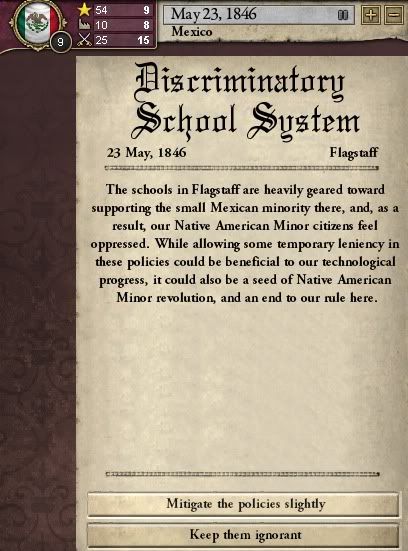
"And so, we will continue, to use words our students know, to connect them to the larger world. To make the familiar strange, and the strange familiar. To give them power, and make them aware of what we might know even as we recognize that they have something to teach us as well."
The nods around the room are firm. There is a sense of united purpose among the clergy these days, a sense of power, a sense of a mission, that had been lacking before.
"Like I said, all these things are established, more or less agreed upon. What I wish to discuss today is that the second part of our mission, as envisioned by the government, is itself problematic. Not merely in relation to our others goals, but as its own idea. The problem is this. What does being "Mexican" mean?"
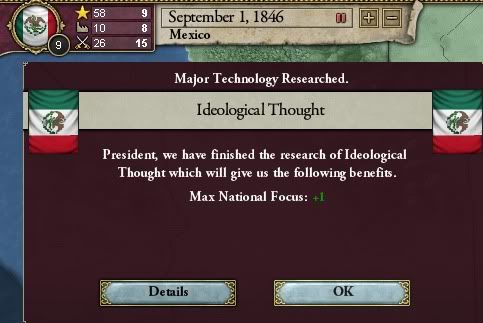
"We have seen, and learned, and read, how ideas have power, and that ideas and beliefs are a system, and that the world has many such systems. Being liberal is one such system, being conservative another, and so on. Each of these sets of ideas, ways of being, are, if you will, a set of clothes we wear. I do not meant a disguise, but rather, something we have which we put on to convey a message about who and what we are. The way we speak, the beliefs we hold, all of this is part of this larger idea of "being liberal" or "being conservative." These sets of ideas are, as we know, powerful. We well know the power of our own ideas."
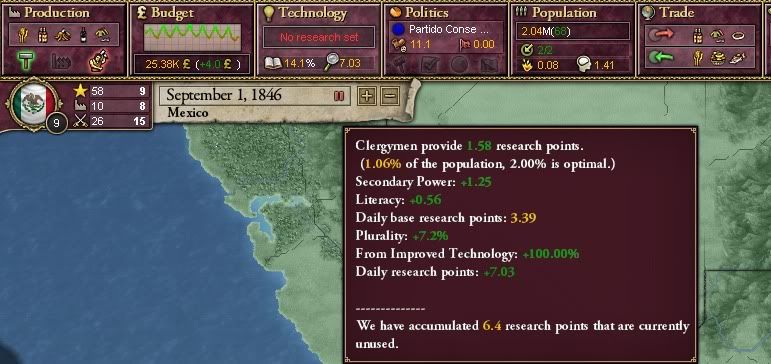
"The government estimates that in ten short years we have boosted the number of "literates" that is, people who can read and write in Spanish, from one in ten to three in twenty. This may seem like a small change, but I say it is a big change. Thousands of people who before could not do this thing, can now do it, for themselves, for their community, they now possess the words to unite their local world to the larger world, and change both in ways which neither we, the teachers, they the government, or them, the villagers themselves, can foresee. This is a direct result of our ideas, of the way we, the teachers, now aproach the act of teaching."
He walked to the flag that was a fixture in rooms such as these, and considered it.
"Which returns us to my earlier question, of what "being Mexican" means. We have seen how, as we connect our flock to the world, they *do* become more Mexican, in their own way. They are not the Mexicans that the capitol wants and envisions, I think. But they see how the have common interests with the republic around them. This shows, two things, first, that being "Mexican", much like "being liberal" is what we have taken to calling an ideological construct. A set of ideas and a way of seeing yourself and the world. This means anyone can become Mexican, but it further reinforces the idea that shutting an individual out of the idea of being Mexican until they transform into such a thing is self-defeating."
He closes his eyes, can feel the words of God, feel his presence, pushing him.
"But it also means something else. Everywhere around us, we see the same thing: in the factories, in the railroads, everywhere. Just as we are reaching one set of conclusions, others are reaching other conclusions, and they are an opposing set of conclusions. These conclusions are that the lot of man is as a unit: a workshift, a cog in the machine. A mass of humanity. They take this idea I mentioned earlier that people take on a ideological way of being, is taken to mean that individual man can be considered nothing but an amorphous part of a larger ideological construct. Everything, in short, in opposition to what we have come to learn and believe about the world. And this, I believe, is our next task. To explore, and find out, and show, that the world is wrong: to demonstrate the beauty and power of the individual."
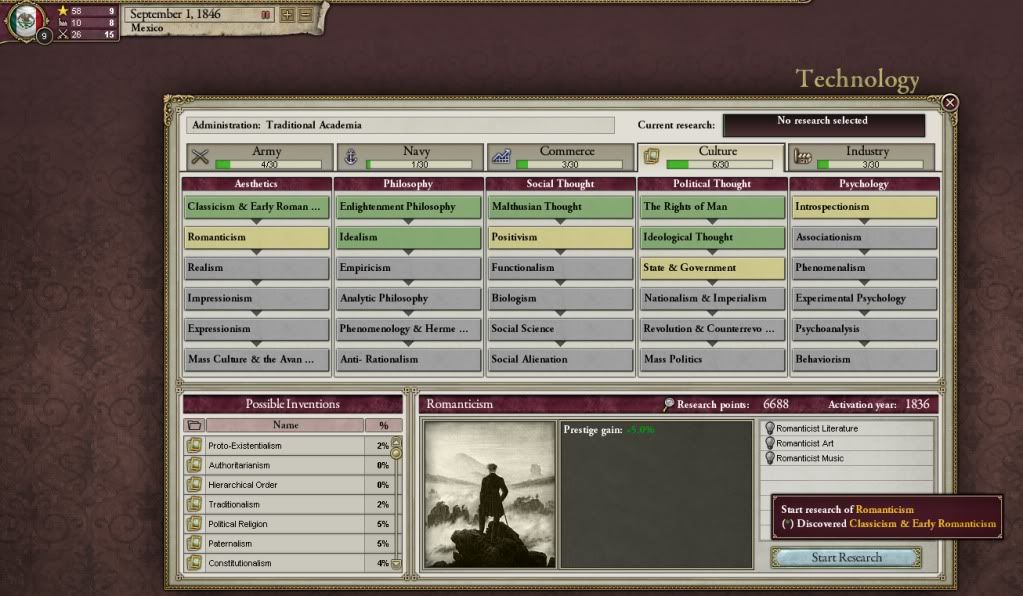
"The government has tasked us with two duties, as it sees it. To educate, and to support being 'Mexican'"
These conferences, talks, discussions, whatever you wanted to call them, had become more frequent. Partly, it was his own sense of mission that sent him wandering around the country, talking to whoever would listen, and some who wouldn't. Mostly, it was that his Brothers, these men who were charged with "teaching the ignorant" were waking up. They had all assumed, as he had, that they possessed knowledge, which they would transmit into the blank minds of the peasants they were teaching.
But the minds of those peasants were not blank, the act of teaching was not, in fact, an act of transmission of knowledge, and they were finding out that they, the teachers, might not possess knowledge, or at the very least, their status as "possessors of knowledge" was a complicated and fraught idea, that can only be spoken of with uncertainty.
"I think I speak for our common understanding when I say that we, as men of the cloth, have come to the understanding that the first mission and the second are not compatible. Just as we cannot serve both God and Mammon, we cannot connect our students to the wider world and help them to understand it while supporting a policy designed to shut them out of the world as a sort of punishment and inducement to change who they are. They idea, I suppose, is that if they change who they are, they will be rewarded with the world. But how can any one of us change when shut out of the world? Is this not precisely what changes us? And so, again, I say, our understanding is that, in what ways we can, we will fight this policy of shutting out our students from the world. We will use words that connect them from their world, into the larger world, and show them the differences and similarities between the two."

"And so, we will continue, to use words our students know, to connect them to the larger world. To make the familiar strange, and the strange familiar. To give them power, and make them aware of what we might know even as we recognize that they have something to teach us as well."
The nods around the room are firm. There is a sense of united purpose among the clergy these days, a sense of power, a sense of a mission, that had been lacking before.
"Like I said, all these things are established, more or less agreed upon. What I wish to discuss today is that the second part of our mission, as envisioned by the government, is itself problematic. Not merely in relation to our others goals, but as its own idea. The problem is this. What does being "Mexican" mean?"

"We have seen, and learned, and read, how ideas have power, and that ideas and beliefs are a system, and that the world has many such systems. Being liberal is one such system, being conservative another, and so on. Each of these sets of ideas, ways of being, are, if you will, a set of clothes we wear. I do not meant a disguise, but rather, something we have which we put on to convey a message about who and what we are. The way we speak, the beliefs we hold, all of this is part of this larger idea of "being liberal" or "being conservative." These sets of ideas are, as we know, powerful. We well know the power of our own ideas."

"The government estimates that in ten short years we have boosted the number of "literates" that is, people who can read and write in Spanish, from one in ten to three in twenty. This may seem like a small change, but I say it is a big change. Thousands of people who before could not do this thing, can now do it, for themselves, for their community, they now possess the words to unite their local world to the larger world, and change both in ways which neither we, the teachers, they the government, or them, the villagers themselves, can foresee. This is a direct result of our ideas, of the way we, the teachers, now aproach the act of teaching."
He walked to the flag that was a fixture in rooms such as these, and considered it.
"Which returns us to my earlier question, of what "being Mexican" means. We have seen how, as we connect our flock to the world, they *do* become more Mexican, in their own way. They are not the Mexicans that the capitol wants and envisions, I think. But they see how the have common interests with the republic around them. This shows, two things, first, that being "Mexican", much like "being liberal" is what we have taken to calling an ideological construct. A set of ideas and a way of seeing yourself and the world. This means anyone can become Mexican, but it further reinforces the idea that shutting an individual out of the idea of being Mexican until they transform into such a thing is self-defeating."
He closes his eyes, can feel the words of God, feel his presence, pushing him.
"But it also means something else. Everywhere around us, we see the same thing: in the factories, in the railroads, everywhere. Just as we are reaching one set of conclusions, others are reaching other conclusions, and they are an opposing set of conclusions. These conclusions are that the lot of man is as a unit: a workshift, a cog in the machine. A mass of humanity. They take this idea I mentioned earlier that people take on a ideological way of being, is taken to mean that individual man can be considered nothing but an amorphous part of a larger ideological construct. Everything, in short, in opposition to what we have come to learn and believe about the world. And this, I believe, is our next task. To explore, and find out, and show, that the world is wrong: to demonstrate the beauty and power of the individual."

as ever, very intriguing, the way you are using events that are so easy just to click over is really impressive
Actions speak louder than words?
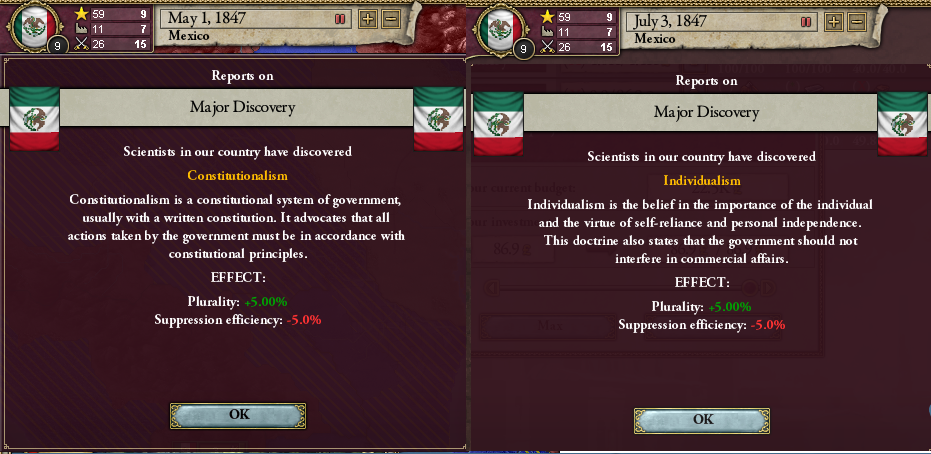
-excerpted from To Speak, to Act by Pablo Fierro.
Words. In the Bible, God utters words, and the world comes into being. Words are power.
Much as God said, "Let there be Light", and the was Light, the Government has said "Let the people read" and more of them read. Or so they would have you believe.
For, the men running the factories and the men in the government wish the people of Mexico to possess the power of words, of reading and writing in Spanish.
But they imagine they can control this. Channel it. But that is not the way of words for anyone but God.
God brings forth Light and all else that is in this world, but when men create things by words, the cannot control what life their creations might take, for that life is now God's.
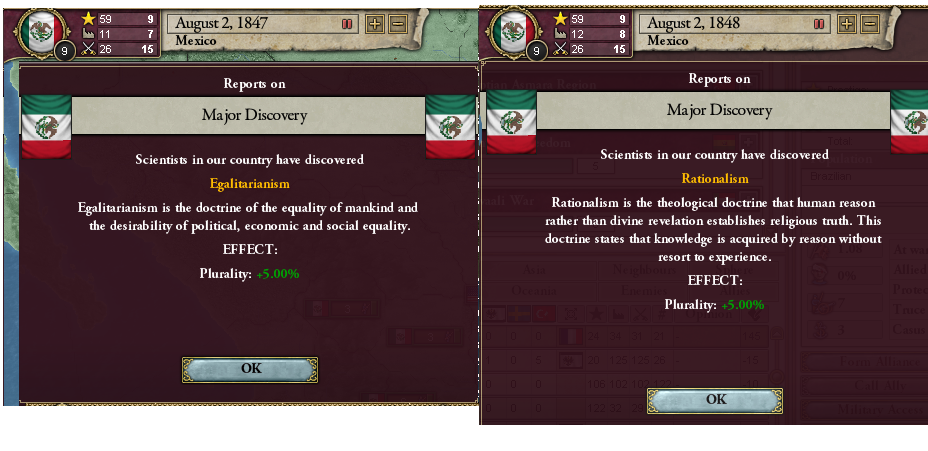
It has been said, of late, that many of those who have learned to read have been manipulated, fooled. That they are the dupes of those who taught them, or else they are being taken in by the words and deeds that have been, as some would have it, all the fad recently. But how can this be? Did they not choose what to read, what to believe? Did they not use their God given faculty of reason to judge whether what they heard was right?
Others, of a more intellectual bent, believe that the recent changes in the national discourse are an inevitable outcome of larger forces at play. They would point to how communications between the continents have become simpler, how our own nation is more tightly tied together by the railroad. This is to dismiss the role of the individual. Is each if the individuals going about causing "trouble" truly nothing more than a bit of flotsam amidst the currents of historical forces?
It seems that some of those in government got what they wished when more Mexican learned to read, but that they did not get what they imagined when more Mexicans learned how to read.
Which brings me to my first point. The act of reading, and the act of writing, are political. Ideological, if you perfer.
After all, what determined what happened when the people of Mexico began to read? Or the people of any other nation?
The many nations of Germany possessed a high amount of literacy, and while this alone shaped the direction of that people, was each individual choice about what to read and how to interpret it not the crucial question?
If Young Werther could be said to be a figment of the national German imagination that united each of them, was it not their choice to be united as one national consciousness?
Similarly, isn't the changing character of our beloved Mexico a result of individual acts done together? Is not our national consciousness a thing we will create, not a thing that will, or even can, be imposed on us? Will not the words, even the language we speak them in, resound more loudly than any actions of the government?
After all, the Constitution is words, and these words provide the power by which these things are done, or not done, on behalf of the railroads or against the factory workers..
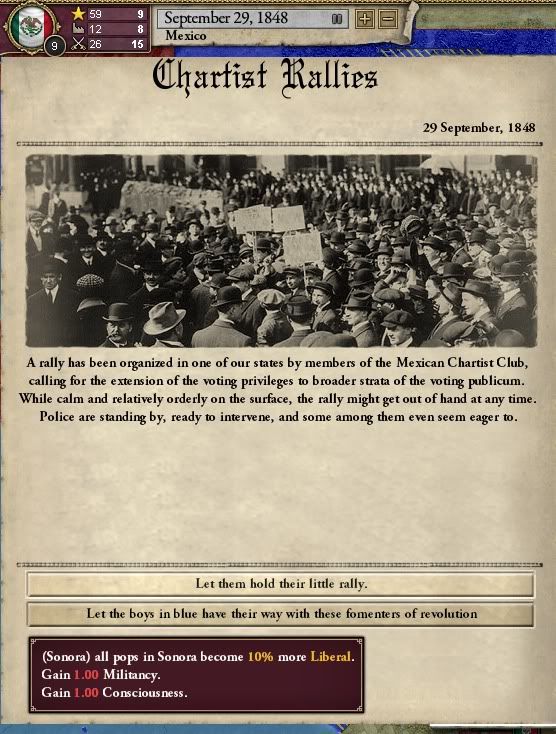
To see why the current policies are flawed, it is only necessary grasp a simple truth: Some of the words we speak can take unexpected turns, and some of the actions we commit can have uncertain reasons.
If a government official decides to allow a rally which protests the government to proceed, is this an act of fear, an act of courage, or simply a belief that the opinions being expressed would be more dangerous if oppressed? Is his action to allow words to be spoken the thing with more power, or the words spoken at the rally? Or is it the idea itself, this idea of a ballot box that welcomes more people?
Are the words spoken at the rally, if allowed to occur, a magic spell? Or are they considered, thought over, discussed? Perhaps written about in the paper? Do we not each of us choose how to interpret these words and choose whether to attend such a rally or not?
Is not that choice part of the overall individual sequence of choices that shapes how a series of words written on paper take on a life of their own? It is. The power of the individual, then, is such that their actions can have unknown reasons, due to the multiplicity of the human character, and unknown results.
Not only does this throw into question the entire government's policy of encouraging the act of reading and writing in Spanish while attempting to pretend that words are not political things, it throws into relief
my central point:
To speak, to act, to write, these are all the same thing. When we write, for instance, we are starting a conversation with all of our readers through which we attempt to shape the national conversation that is now occurring...
-------
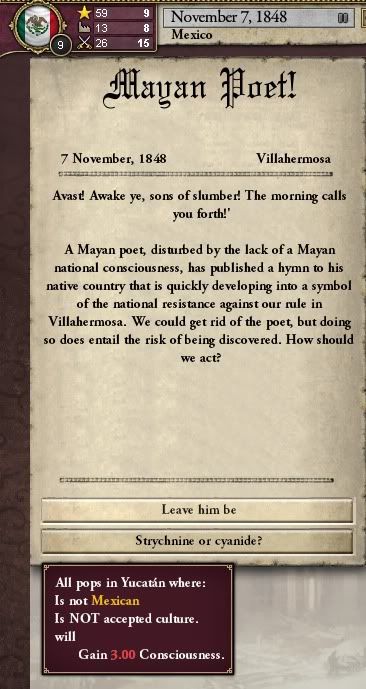
"Don't forget the teachings of the ancestors. In their paths we will find hope for the future."- Mayan folk saying
Father of our nation! Creator of the Maya!
Where is your love? Where is your compassion?
You extended your arms, and made our nation grow into an empire.
But now, cruel men make our people suffer.
Tears of blood now flow in the venerated land of the Maya.
We call upon you, because our people are suffering.
Where are you Kukulkan? Where is your noble heart?
If you were alive today, our nation would prosper.
(Adapted from PACHAKUTEQ, which is a *Inca* national poem...)
----

-excerpted from To Speak, to Act by Pablo Fierro.
Words. In the Bible, God utters words, and the world comes into being. Words are power.
Much as God said, "Let there be Light", and the was Light, the Government has said "Let the people read" and more of them read. Or so they would have you believe.
For, the men running the factories and the men in the government wish the people of Mexico to possess the power of words, of reading and writing in Spanish.
But they imagine they can control this. Channel it. But that is not the way of words for anyone but God.
God brings forth Light and all else that is in this world, but when men create things by words, the cannot control what life their creations might take, for that life is now God's.

It has been said, of late, that many of those who have learned to read have been manipulated, fooled. That they are the dupes of those who taught them, or else they are being taken in by the words and deeds that have been, as some would have it, all the fad recently. But how can this be? Did they not choose what to read, what to believe? Did they not use their God given faculty of reason to judge whether what they heard was right?
Others, of a more intellectual bent, believe that the recent changes in the national discourse are an inevitable outcome of larger forces at play. They would point to how communications between the continents have become simpler, how our own nation is more tightly tied together by the railroad. This is to dismiss the role of the individual. Is each if the individuals going about causing "trouble" truly nothing more than a bit of flotsam amidst the currents of historical forces?
It seems that some of those in government got what they wished when more Mexican learned to read, but that they did not get what they imagined when more Mexicans learned how to read.
Which brings me to my first point. The act of reading, and the act of writing, are political. Ideological, if you perfer.
After all, what determined what happened when the people of Mexico began to read? Or the people of any other nation?
The many nations of Germany possessed a high amount of literacy, and while this alone shaped the direction of that people, was each individual choice about what to read and how to interpret it not the crucial question?
If Young Werther could be said to be a figment of the national German imagination that united each of them, was it not their choice to be united as one national consciousness?
Similarly, isn't the changing character of our beloved Mexico a result of individual acts done together? Is not our national consciousness a thing we will create, not a thing that will, or even can, be imposed on us? Will not the words, even the language we speak them in, resound more loudly than any actions of the government?
After all, the Constitution is words, and these words provide the power by which these things are done, or not done, on behalf of the railroads or against the factory workers..

To see why the current policies are flawed, it is only necessary grasp a simple truth: Some of the words we speak can take unexpected turns, and some of the actions we commit can have uncertain reasons.
If a government official decides to allow a rally which protests the government to proceed, is this an act of fear, an act of courage, or simply a belief that the opinions being expressed would be more dangerous if oppressed? Is his action to allow words to be spoken the thing with more power, or the words spoken at the rally? Or is it the idea itself, this idea of a ballot box that welcomes more people?
Are the words spoken at the rally, if allowed to occur, a magic spell? Or are they considered, thought over, discussed? Perhaps written about in the paper? Do we not each of us choose how to interpret these words and choose whether to attend such a rally or not?
Is not that choice part of the overall individual sequence of choices that shapes how a series of words written on paper take on a life of their own? It is. The power of the individual, then, is such that their actions can have unknown reasons, due to the multiplicity of the human character, and unknown results.
Not only does this throw into question the entire government's policy of encouraging the act of reading and writing in Spanish while attempting to pretend that words are not political things, it throws into relief
my central point:
To speak, to act, to write, these are all the same thing. When we write, for instance, we are starting a conversation with all of our readers through which we attempt to shape the national conversation that is now occurring...
-------

"Don't forget the teachings of the ancestors. In their paths we will find hope for the future."- Mayan folk saying
Father of our nation! Creator of the Maya!
Where is your love? Where is your compassion?
You extended your arms, and made our nation grow into an empire.
But now, cruel men make our people suffer.
Tears of blood now flow in the venerated land of the Maya.
We call upon you, because our people are suffering.
Where are you Kukulkan? Where is your noble heart?
If you were alive today, our nation would prosper.
(Adapted from PACHAKUTEQ, which is a *Inca* national poem...)
----
Last edited:
again, fascinating stuff, but you do seem to be stacking up consciousness among ethnic groups and the start of liberalism, so it could be an explosive mix prettty soon?
Overall, consciousness is good for a democracy, its militancy that can be a serious problem, no?
In either case, even with all the consciousness raising I am doing, consciousness is overall very low (1.37 average around 1848). To give you a sense of it, the highest amount of consciousness of any single Mayan/Nauhault/Etc pop is found in some Native American ranchers in San Antonio: 5.73.
Likewise, overall militancy is low (0.43 in 1848), some pops have high militancy values (European immigrants who are anarchists. Afro-American pops who are part of a pro-enslavement league :rofl:, and such..) the one "native" pop with high militancy is some Maya artisans at 8.28, but *it's* consciousness is low.
And of course, there's an element of "role-playing" here as well. It may not be optimal or necessarily wise, but it is a logical consequence of what is going on in this Mexico..
Also, thanks again for being such an active commenter.
In either case, even with all the consciousness raising I am doing, consciousness is overall very low (1.37 average around 1848). To give you a sense of it, the highest amount of consciousness of any single Mayan/Nauhault/Etc pop is found in some Native American ranchers in San Antonio: 5.73.
Likewise, overall militancy is low (0.43 in 1848), some pops have high militancy values (European immigrants who are anarchists. Afro-American pops who are part of a pro-enslavement league :rofl:, and such..) the one "native" pop with high militancy is some Maya artisans at 8.28, but *it's* consciousness is low.
And of course, there's an element of "role-playing" here as well. It may not be optimal or necessarily wise, but it is a logical consequence of what is going on in this Mexico..
Also, thanks again for being such an active commenter.
Interesting choices, lots of potential for change in the near future. It'd be pretty interesting if, as loki predicted, this turned into a volatile, explosive result.
A picture is worth....
"How can we possibly teach, knowing what we now know?"
He looked around the church, as though seeing it for the first time. His look conveyed disgust, revulsion.
"The very system we joined works against us, and it is not an accident. It was *designed* to work against the idea of freedom. It was *designed* to keep people ignorant. We, men of the cloth, were meant to be loyal to the establishment. And why not? It had worked before. We always had been the establsihment. The churches of this nation were part of the instrument of control. They still are."
These days, it seemed he had so much to say, so much energy, it threatened to consume him and burn him to ashes. The word of God was in him, and it was more than his mortal body could properly hold. But change came so slowly...
"We were not, in fact, to teach people to read, to understand, to comprehend. We were to teach them to decipher the symbols, the text off the page, and accept the text as authority. It was the goal, the ambition of the bureaucrats and capitalist in the Capital, that by creating a system where the poor were brought in to be aught how to read, that the things they would read could thus be chosen. For these people were not illiterate. That was the danger. They could read, but in their own way, not in Spanish, or not the things approved by the government. Have not letters, farmers almanacs, poems, and so forth been a staple of popular culture for a century now? How then, can "illiteracy" be a problem, one that requires the creation of a mass of clergy to teach droves of students how to 'read and write'? So it is simple. If we are not here to cure 'illiteracy' we are here to control that which is read, and to make it into a task. A job. That is why the way they encouraged us to teach was meaningless, tearing the language apart into meaningless symbols endlessly repeated so as to numb the listened to any potential power and meaning possessed by language."
He takes one of the example sheets that were the things 'students' were supposed to copy.
"Vowel forms!" He tears the piece of paper. "Are the opposite of language, of literacy, of understanding. And this is not an accident."
He pants slightly, he sees he is scaring some of the men who have come to listen to him, some to be inspired, others to be convince, no doubt a few to listen to the crazy prophet man, ranting from his mountaintop.
"So, again, I ask, how could we teach, knowing what we know now? How could we participate in this system?"
Silence.
"I have an answer. Or parts of an answer."
He smiles, putting his fellow teachers, his students, at ease.
"We don't."
"We have been isntructed to do one thing, to make language into work, to numb people to it. We will not do this thing."
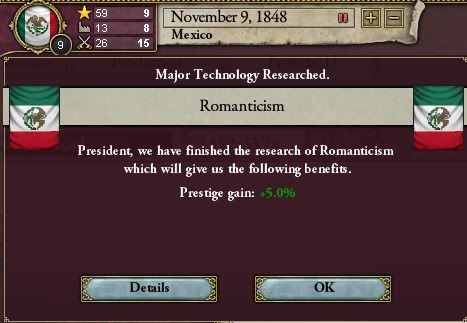
"We will teach them, or really, we will help them discover on their own, the values of emotions. The factories and railroads need men and woman who will, like a locomotive, simply proceed forward, uncomplaining, unfeeling, needing only sustenance to do it's job? We will deny this to them. We will help our students discover all that is beautiful with this world and appreciate it."
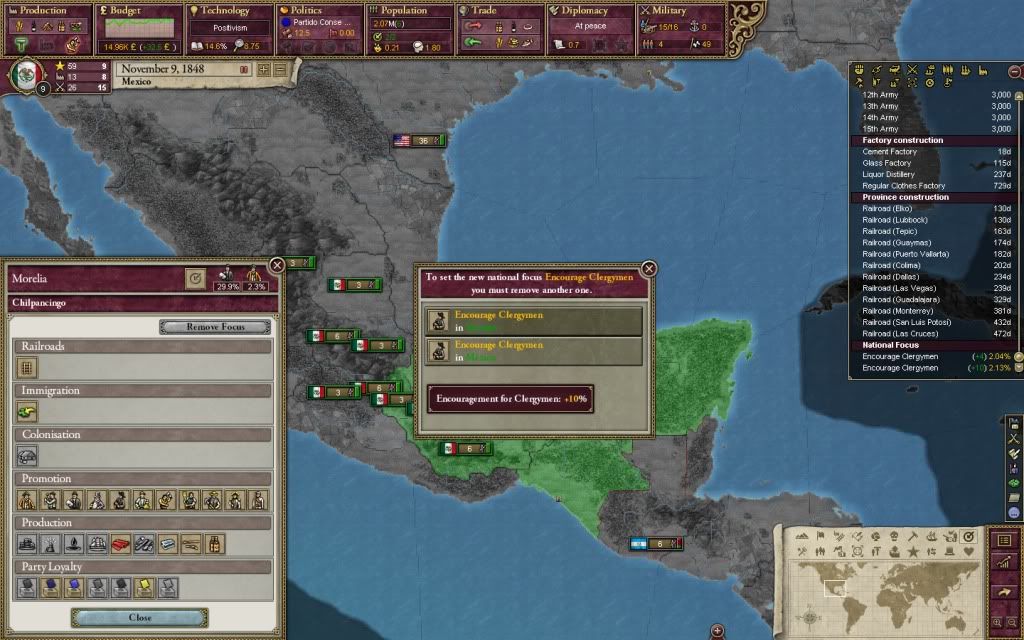
"We will spread out from the Capital and Yucatan, where the "government policies" have focused us, throughout this nation. That is not to say we will depart those places. We will spread. The railroads can carry more than cargo, immigrants, and workers back and forth. They can carry us, and our ideas."
"And we will teach our students that they do not even need words to express the sublime holiness of this world which the Lord God has created. We will reach beyond words, to an image of the world itself, to express the glory of nature, of the self, of a national identity. Not the cramped, narrow thing the government wished, but the living breathing truth. It's in the name of this nation, Mexico, of the Mexica. We are not named after some Italian cartographer, or some Italian sailor who began this tragedy of the Old World meeting the New, our nation is named after a people, a people who are still here, exiled from their own homeland by a government that does not represent them. A people who have always been speaking, reading, writing, but we have been unable and unwilling to listen. Very well. We will help them reach a new way of expressing. God, through nature itself, will speak to those who have heard nothing else."
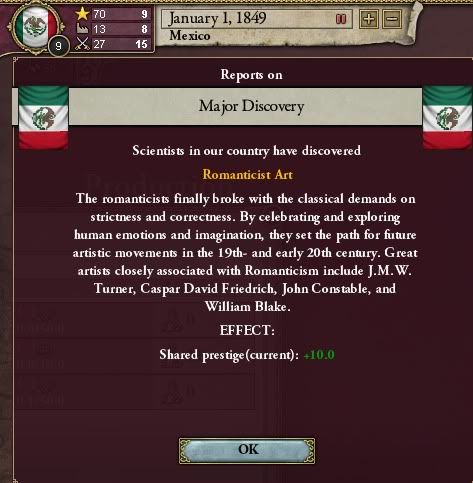
"How can we possibly teach, knowing what we now know?"
He looked around the church, as though seeing it for the first time. His look conveyed disgust, revulsion.
"The very system we joined works against us, and it is not an accident. It was *designed* to work against the idea of freedom. It was *designed* to keep people ignorant. We, men of the cloth, were meant to be loyal to the establishment. And why not? It had worked before. We always had been the establsihment. The churches of this nation were part of the instrument of control. They still are."
These days, it seemed he had so much to say, so much energy, it threatened to consume him and burn him to ashes. The word of God was in him, and it was more than his mortal body could properly hold. But change came so slowly...
"We were not, in fact, to teach people to read, to understand, to comprehend. We were to teach them to decipher the symbols, the text off the page, and accept the text as authority. It was the goal, the ambition of the bureaucrats and capitalist in the Capital, that by creating a system where the poor were brought in to be aught how to read, that the things they would read could thus be chosen. For these people were not illiterate. That was the danger. They could read, but in their own way, not in Spanish, or not the things approved by the government. Have not letters, farmers almanacs, poems, and so forth been a staple of popular culture for a century now? How then, can "illiteracy" be a problem, one that requires the creation of a mass of clergy to teach droves of students how to 'read and write'? So it is simple. If we are not here to cure 'illiteracy' we are here to control that which is read, and to make it into a task. A job. That is why the way they encouraged us to teach was meaningless, tearing the language apart into meaningless symbols endlessly repeated so as to numb the listened to any potential power and meaning possessed by language."
He takes one of the example sheets that were the things 'students' were supposed to copy.
"Vowel forms!" He tears the piece of paper. "Are the opposite of language, of literacy, of understanding. And this is not an accident."
He pants slightly, he sees he is scaring some of the men who have come to listen to him, some to be inspired, others to be convince, no doubt a few to listen to the crazy prophet man, ranting from his mountaintop.
"So, again, I ask, how could we teach, knowing what we know now? How could we participate in this system?"
Silence.
"I have an answer. Or parts of an answer."
He smiles, putting his fellow teachers, his students, at ease.
"We don't."
"We have been isntructed to do one thing, to make language into work, to numb people to it. We will not do this thing."

"We will teach them, or really, we will help them discover on their own, the values of emotions. The factories and railroads need men and woman who will, like a locomotive, simply proceed forward, uncomplaining, unfeeling, needing only sustenance to do it's job? We will deny this to them. We will help our students discover all that is beautiful with this world and appreciate it."

"We will spread out from the Capital and Yucatan, where the "government policies" have focused us, throughout this nation. That is not to say we will depart those places. We will spread. The railroads can carry more than cargo, immigrants, and workers back and forth. They can carry us, and our ideas."
"And we will teach our students that they do not even need words to express the sublime holiness of this world which the Lord God has created. We will reach beyond words, to an image of the world itself, to express the glory of nature, of the self, of a national identity. Not the cramped, narrow thing the government wished, but the living breathing truth. It's in the name of this nation, Mexico, of the Mexica. We are not named after some Italian cartographer, or some Italian sailor who began this tragedy of the Old World meeting the New, our nation is named after a people, a people who are still here, exiled from their own homeland by a government that does not represent them. A people who have always been speaking, reading, writing, but we have been unable and unwilling to listen. Very well. We will help them reach a new way of expressing. God, through nature itself, will speak to those who have heard nothing else."

The Last Supper
He knew what must happen soon, but he smiled, knowing it was too late.
Once, he and other men like him had thought that the act of reading was pulling meaning from the page, deciphering the code of the letters. Then, they had corrected themselves, no, perhaps, it was not the text itself, but rather the interaction between the text and the reader, the person reading the text conversed with it. But even this had been too narrow: they had realized that people learned to read in ways not considered, not counted. They learned to read through newspapers, through neighbors, through books, in ways relevent to their every day lives. But even limiting the act of reading to the every day was to make it smaller than it is, for reading is political, as is teaching it. Sometimes, it was not even teaching reading, but expression, in all its forms.
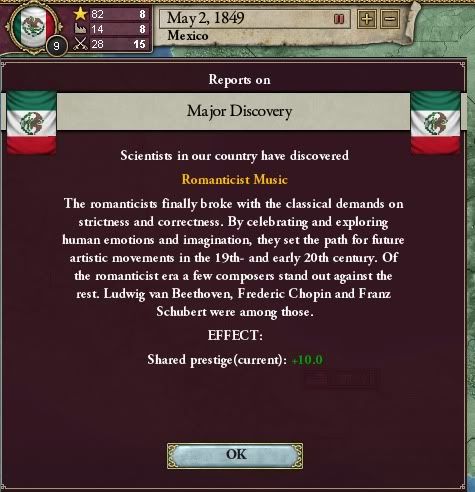
The end was coming soon. Not for everyone, no, but him. He was calm about it. At peace. When he prayed, he heard God, and saw the example of Jesus, accepting the burden laid upon him.
The words he had said and written were enough, would have to be enough. They could never equal the words of the Lord, but they did not have to, for those words were already among the minds of men. He had but to hep those words spread, give them new meaning. Help people see things a new way. To make the strange familiar, and the familiar strange.
The latest bit of scholarly writing making the rounds was about how social systems were able to be studied and measured much like physical laws. He had his doubts, but it was interesting. It would open new avenues. No doubt some would attempt to codify the idea of educating the poor peaseants, well, fine, but they were, and always had been, capable of educating themselves. A it of codification shouldn't hurt, the idea of exploring the world and discovering what it was made of, all on your own, was present and alive now, it was just a question of what flavor it would take each year...
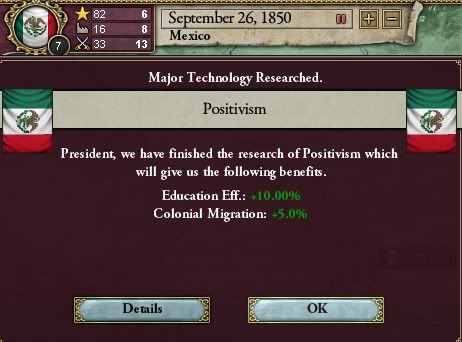
No matter what came of it, he might not be here to see it. They would come soon, the only question was whether he would live in a prison or die by hanging. Either way, the "ignorant illiterates" had found their voice, and he was sure that Mexico, and the world, would be richer and stronger for it.
He finished his prayers and headed out of the church, towards the town square. Time to speak, loudly as he could, at least once more..
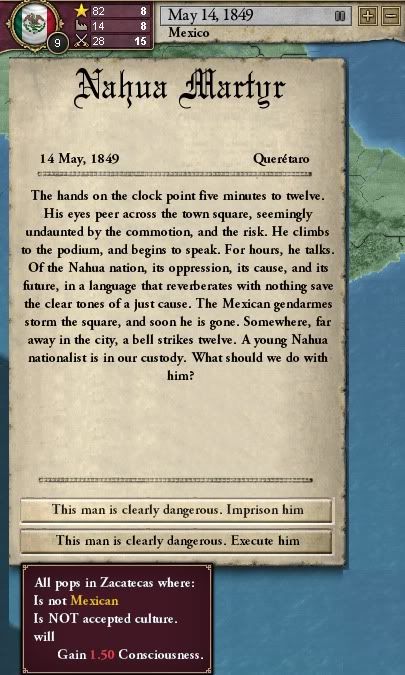
He knew what must happen soon, but he smiled, knowing it was too late.
Once, he and other men like him had thought that the act of reading was pulling meaning from the page, deciphering the code of the letters. Then, they had corrected themselves, no, perhaps, it was not the text itself, but rather the interaction between the text and the reader, the person reading the text conversed with it. But even this had been too narrow: they had realized that people learned to read in ways not considered, not counted. They learned to read through newspapers, through neighbors, through books, in ways relevent to their every day lives. But even limiting the act of reading to the every day was to make it smaller than it is, for reading is political, as is teaching it. Sometimes, it was not even teaching reading, but expression, in all its forms.

The end was coming soon. Not for everyone, no, but him. He was calm about it. At peace. When he prayed, he heard God, and saw the example of Jesus, accepting the burden laid upon him.
The words he had said and written were enough, would have to be enough. They could never equal the words of the Lord, but they did not have to, for those words were already among the minds of men. He had but to hep those words spread, give them new meaning. Help people see things a new way. To make the strange familiar, and the familiar strange.
The latest bit of scholarly writing making the rounds was about how social systems were able to be studied and measured much like physical laws. He had his doubts, but it was interesting. It would open new avenues. No doubt some would attempt to codify the idea of educating the poor peaseants, well, fine, but they were, and always had been, capable of educating themselves. A it of codification shouldn't hurt, the idea of exploring the world and discovering what it was made of, all on your own, was present and alive now, it was just a question of what flavor it would take each year...

No matter what came of it, he might not be here to see it. They would come soon, the only question was whether he would live in a prison or die by hanging. Either way, the "ignorant illiterates" had found their voice, and he was sure that Mexico, and the world, would be richer and stronger for it.
He finished his prayers and headed out of the church, towards the town square. Time to speak, loudly as he could, at least once more..

great pair of posts and a superb use of the in-game messages ... I remain deeply impressed at how you are handling this
great pair of posts and a superb use of the in-game messages ... I remain deeply impressed at how you are handling this
Thanks again for the terrific compliments/comments.
---
I think it's time we moved onto the next chapter. Once again, we will be going back and time, looking at various events through yet another lens.
Honestly, I sometimes wonder if I will ever stop writing about the period from 1836-1850ish.
My original plan was for the next chapter to be like all the previous ones in terms of length and period of time covered through its own lens (looking at the working class), and then one final chapter to go back one last time and perhaps bring us further forward in time than we have have gone until recently through *its* lens (politics).
I'd appreciate comments/thoughts on how that sounds to people.
Either way, next update is probably going to be Saturday, so make your thoughts known before then if it matters to you.
EDIT: Just to be clear, the "story I would be relating" has already occurred, one way or another, its just a question of whether or not I tell you more of what occurred or less. Think of as a "fast forward" vs "extended version" choice as regards the story.
Last edited:
I love your handling of those random in-game events! Very nice!
It's too easy to forget that every single one of these brief events could probably be the subject of a novel
It's too easy to forget that every single one of these brief events could probably be the subject of a novel

